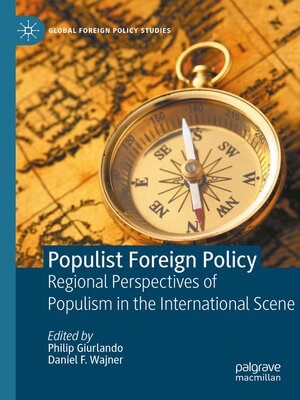Populist Foreign Policy
ebook ∣ Regional Perspectives of Populism in the International Scene · Global Foreign Policy Studies
By Philip Giurlando

Sign up to save your library
With an OverDrive account, you can save your favorite libraries for at-a-glance information about availability. Find out more about OverDrive accounts.
Find this title in Libby, the library reading app by OverDrive.



Search for a digital library with this title
Title found at these libraries:
| Loading... |
The empirical analysis sheds new light on how populists' distinctive conception of a world divided antagonistically between "the people" and "the elites" influences behaviour towards multilateral organizations such as the United Nations and the European Union, and regional or global hegemonic powers like the United States, Germany, Russia, and China. The book also shows how ideas related to identity, ideology, status and emotions, impinge on populists' conduct vis-à-vis other international actors, and how national and international structures affect the implementation of populist foreign policies in the regional, interregional, and global arenas. The wide geographical diversity and regional representation are also valuable in identifying cultural similarities and differences. Hence, the findings contribute to lively debates on whether there is a unified and coherent foreign policy among populist leaderships, and whether populism leads to a gradual "corrective" of transnational trends in contemporary politics or, conversely, to a more radical, structural shift in the liberal international order.






